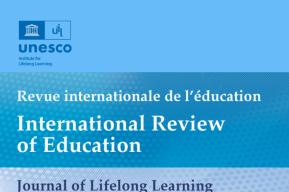News
Cabo Verde joins the Ocean Decade Alliance

As a Small Island Developing State (SIDS) made up of 99% sea and only 1% land, the Republic of Cabo Verde is truly an ocean nation and is strongly dependent on robust science and knowledge to manage its ocean and marine resources for sustainable development.
H.E. José Maria Pereira Neves, President of the Republic of Cabo Verde, officially accepted the invitation from the UNESCO Director-General, Ms Audrey Azoulay, to join the Ocean Decade Alliance, a group of eminent partners catalyzing support for the Ocean Decade through resource mobilization, networking and influence.
The Alliance was created to bring together global leaders around a collective, worldwide, UN-led effort to resolve some of the most pressing ocean Challenges. Members of the Alliance are committed to raising awareness of the need to mobilize large scale investment in ocean science to support proponents of Ocean Decade Actions achieve the priorities of the Decade.
Cabo Verde is the third SIDS country to join the Ocean Decade Alliance, after Seychelles and Palau last year, and has long been committed to the Ocean Decade. Its National Decade Committee – one of the first to be set up at global level, and the first for Africa – actively engages with young professionals, the private sector, decision makers and civil society to expand the Ocean Decade movement at national scale.
“I am convinced of the extreme importance of Cabo Verde’s accession to the Ocean Decade Alliance as an oceanic nation itself,” wrote President José Maria Pereira Neves upon accepting UNESCO’s invitation to join the Ocean Decade Alliance. “On this occasion, I reiterate my firm commitment to contribute to the protection and preservation of the ocean, as well as to increase ocean literacy, towards the Ocean We Want by 2030.”
A further testament to its commitment, the Presidency of the Republic is hosting the Ocean Decade Conference II on 27 June 2023. Additionally, the Ministry of the Sea is organizing the annual Cabo Verde Ocean Week in November 2023 to raise awareness and foster dialogue about the importance and sustainability of the ocean.
The Ocean Decade Alliance supports all forms of ocean science to fulfill the Decade vision and contribute to the 2030 Agenda for Sustainable Development, with a focus on action and jointly developed solutions. At the highest level, Alliance members collaborate to shape the implementation of the Decade, structuring their funding and resource strategies to meet identified ambitions.
Cabo Verde joins the seventeen existing Alliance members comprising countries, United Nations agencies, philanthropic foundations and private sector companies.
Watch the video message of H.E. José Maria Pereira Neves
About the Ocean Decade:
Proclaimed in 2017 by the United Nations General Assembly, the UN Decade of Ocean Science for Sustainable Development (2021-2030) (‘the Ocean Decade’) seeks to stimulate ocean science and knowledge generation to reverse the decline of the state of the ocean system and catalyse new opportunities for sustainable development of this massive marine ecosystem. The vision of the Ocean Decade is ‘the science we need for the ocean we want’. The Ocean Decade provides a convening framework for scientists and stakeholders from diverse sectors to develop the scientific knowledge and the partnerships needed to accelerate and harness advances in ocean science to achieve a better understanding of the ocean system, and deliver science-based solutions to achieve the 2030 Agenda. The UN General Assembly mandated UNESCO’s Intergovernmental Oceanographic Commission (IOC) to coordinate the preparations and implementation of the Decade.
About the IOC/UNESCO:
The Intergovernmental Oceanographic Commission of UNESCO (IOC/UNESCO) promotes international cooperation in marine sciences to improve management of the ocean, coasts and marine resources. The IOC enables its 150 Member States to work together by coordinating programmes in capacity development, ocean observations and services, ocean science and tsunami warning. The work of the IOC contributes to the mission of UNESCO to promote the advancement of science and its applications to develop knowledge and capacity, key to economic and social progress, the basis of peace and sustainable development.




